CW'S TOUR DE FRANCE SPECTATOR'S GUIDE
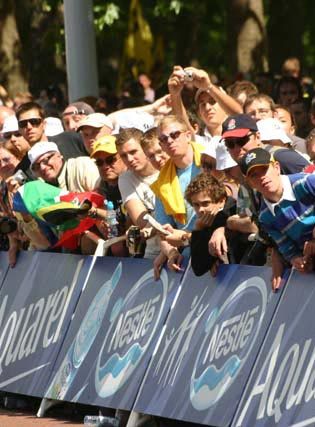
If you are lucky enough to be visiting France to watch the Tour de France in the flesh, here are some handy hints to help you get the most from the experience.
| VANTAGE POINTS |
There are plenty of different and interesting places to watch the Tour de France and if you are planning a trip that will last several days, it?s great to vary how and where you see the race.
? On a climb
Obviously the most dramatic place to watch the race is when they are climbing. The harder the climb, the more stretched out the bunch is the better the spectacle.
? In a town or village
If you come across a pretty town or village, do as the French do, book a table at the appealing little Auberge that?s serving a great lunch and rosé by the pichet and settle in. Do book a table, though, because the locals will have done. Enjoy the build-up of atmosphere and excitement, then head for an afternoon drink in a café to watch the finish on television.
? At the feed zone
Get The Leadout Newsletter
The latest race content, interviews, features, reviews and expert buying guides, direct to your inbox!
The feed zones can be tremendous fun to watch. It?s chaos in there, with the team cars competing for space on the roadside and members of the public getting in the way (try not to stand between Fabian Cancellara and his lunch, though). This is the Tour at it?s craziest, most frenetic and noisiest, a real reminder of how the race is a living thing.
? At a time trial
On television they can be deadly dull, but a time trial is a good way to watch in the flesh simply because you get to see every rider in the race, and the spectacle is stretched out across the whole afternoon.
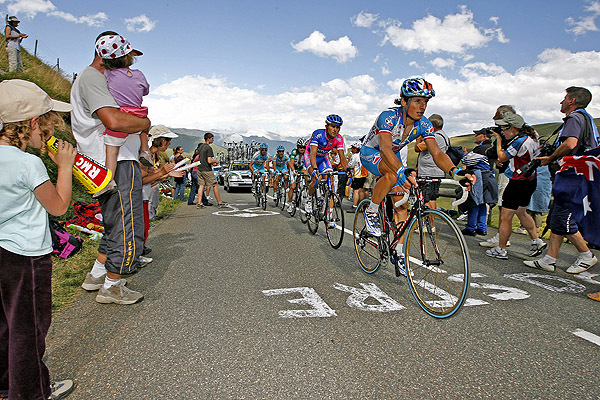
? Watching the start
Mix it with the locals who seem to penetrate the Tour village, which is reserved only for those with the correct accreditation. Too much of the start is barriered off these days, making access to the riders difficult for the public.
? Watching the finish
If you want a place by the railings, get there early and defend your spot from the late-comers with sharp elbows. Of all the vantage points this is the most ?blink-and-you?ll-miss-it?.
| ACCOMMODATION |
It can be difficult finding hotel rooms or even camping places when the Tour?s in town.
If you can, avoid the start and finish towns where the race?s enormous entourage will be staying, instead seek out the attractive little towns along the route.
Try the Logis de France website and look out for the green and yellow logo. They are generally hotels that are excellent value-for-money with great restaurants.
If the chain hotels, such as Sofitel, Novotel, Ibis, Campanile or at the cheaper, no-frills end of the scale, Etap or Formula 1, are full, Google the town?s tourism office and give them a call. Generally they will have someone who speaks English and can help you to book rooms.
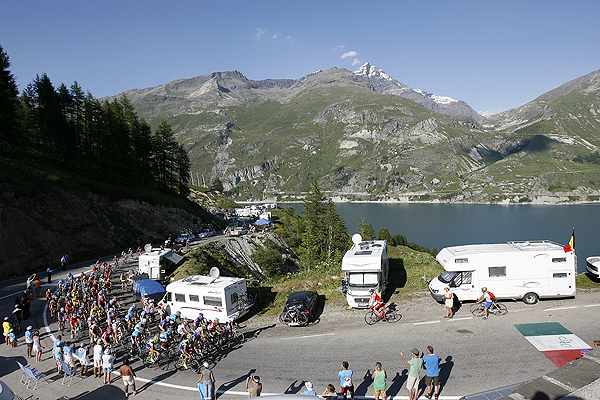
| THINK AHEAD |
Decide in advance what it is you want to see on a given day.
If you decide to head to that second-category climb and set up for the afternoon, go prepared with food, drink and shelter.
If you?re trying to cut across country to see the stage several times, plan your shortcuts, assume that every shortcut will take twice as long to drive, and be prepared to improvise.
Get there early. If you have your heart set on a particular place to watch, get there an hour before the publicity caravan.
And always be prepared for the fact the race may be running ahead of schedule.
If your budget stretches to it, you could buy a French television in a supermarket that will run off a car battery, although you will probably need a booster aerial. A British PAL television will not pick up analogue French TV signals, which are SECAM transmissions.
| WHAT TO TAKE |
You?ll need:
? A copy of L?Equipe with the route, road numbers and time schedule. This can also be printed from www.letour.fr
? A good map and/or sat-nav device. A map is essential, don?t rely on sat-nav
? Food and drink
? A chair
? A hat or something that offers protection from the fierce sun
? Water and windproofs
? Cycling Weekly?s Tour de France guide
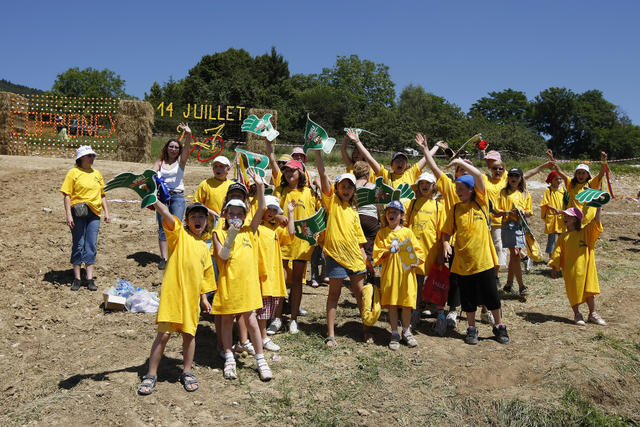
| THE PUBLICITY CARAVAN |
The publicity caravan travels about 90 minutes ahead of the race and, as far as the gendarmerie is concerned, this means the roads are closed to traffic.
The publicity caravan is the cavalcade of loud, gaudy vehicles promoting the wares of a range of companies that sponsor the Tour, often in the cheapest, tackiest way imaginable. It's 20 kilometres long, takes 45 minutes to pass, and has more than 200 vehicles distributing up to 15 million 'gifts' during the race.
Highlights last year were being hit in the head with a melting triangle of Laughing Cow soft cheese, being squirted with water by the Aquarel truck and wrenching a Bouygues Telecom T-shirt out of the hands of a small child.
What? He was too slow and too weak to hang onto it!
Seriously, though, if you want to maintain your dignity, do not scrap about on all fours for that crappy keyring or sachet of Nesquick. It?s unseemly.
Another word of warning. The hot boys and girls in the publicity caravan are only smiling and waving at you because they?re being paid to do so. They are not going to give you their phone number.
They are students who are slowly realising that three weeks spent traveling round France listening to the same music over, and over, and over again is not a ?great way to spend the summer? and that the fit one on the Champion supermarket float is probably not going to sleep with them.
Instead it?s a refuge for 20-somethings who aren?t quite good enough to get on French children?s TV.
Hence the fixed smiles and dead-eyed expressions by the time the race reaches the Pyrenees?.
| THE POLICE |
In our experience, the average gendarme loves to say ?No? and their word should be respected. After all, without the thousands of ordinary officers who stand all day in the blazing sun to ensure the race has safe passage, there would be no Tour de France.
But it means you need to be where you want to be as early as possible.
The police will stop traffic driving on the roads about 40 minutes before the publicity caravan is due, sometimes earlier. They will also ask you to dismount if you are riding a bike, which can be frustrating. However, once the publicity caravan has passed, you will more often than not be allowed to cycle on. Cars, though, won?t be allowed on the road.
The police will also come and have a word if you have parked on the road side in such a way that endangers the race. They don?t like the wing of your car sticking into the road. Get well off the highway or you may be asked to move.
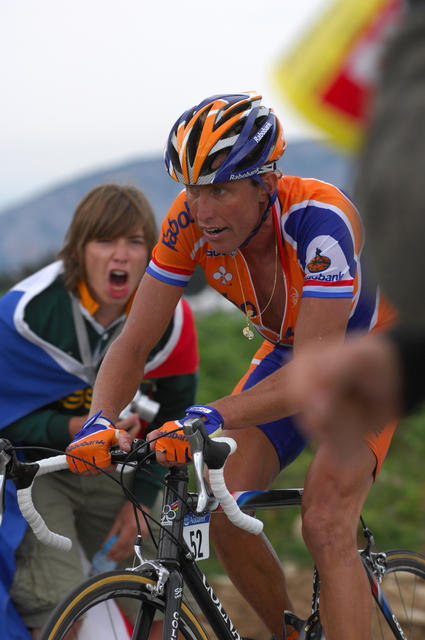
| THE MOUNTAINS |
In the mountains, all this advice goes out of the window. Mountain passes are usually shut to motor traffic the night before the race arrives.
The camper vans will have arrived over the previous week and all the verges, passing places and lay-bys will be full well before the day. You basically have no chance of getting a car onto a Pyrenean or Alpine climb on the day, so you will have to park at the bottom and walk, or cycle up.
Congestion coming off the mountains can be bad too, so make sure you are prepared for a late afternoon dip in temperature. Take care too. It can get crazy out there with cyclists weaving in and out of pedestrians and official Tour traffic trying to get down.
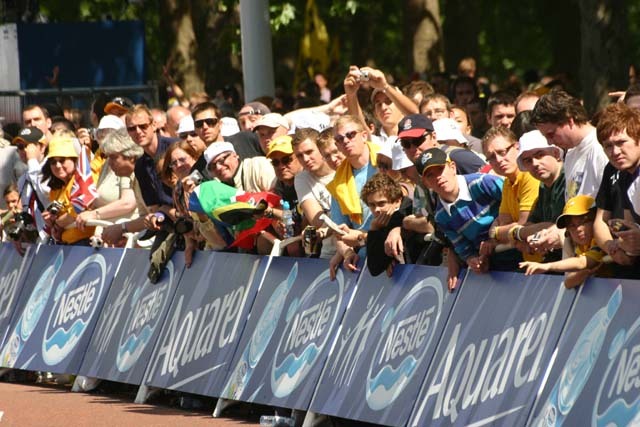
| WEEKENDS |
Weekends on the Tour are a lot busier than midweek days and can be more problematic.
Be aware that the French will park up wherever they can. What looked like a great parking spot when you arrived may turn into a disaster if Jean-Claude and Fabrice have blocked you in.
They will rip up the rule book and park in the middle of the roads that lead onto the Tour route. If you want to make a quick getaway, pull up well short of where the race is, turn around so you are pointing in the direction you want to travel and walk the rest of the way.
| TAKE A BIKE |
You can?t beat riding the roads on Tour day? you?re guaranteed a cheer, no matter how badly you?re going.
With a map or a Garmin you can plot some cracking little routes to pass the morning before the race arrives.
Top of CW?s list to ride this year are the climbs of Super-Besse, Hautacam and, of course, Alpe d?Huez, plus the Cholet time trial course.
Above all, enjoy it? the Tour de France is the greatest sporting spectacle in the world and you can get closer to the action than at any other event.
And if you see CW out on the road, come and say hello? but can we just say in advance, we can?t lend you any Euros, or give you a lift!
| TOUR DE FRANCE 2008: GUIDE |
Tour de France 2008 homepage>>
News and features>>
Route & stages>>
Teams and riders>>
About the Tour>>

Thank you for reading 20 articles this month* Join now for unlimited access
Enjoy your first month for just £1 / $1 / €1
*Read 5 free articles per month without a subscription

Join now for unlimited access
Try first month for just £1 / $1 / €1
Sports journalist Lionel Birnie has written professionally for Sunday Times, Procycling and of course Cycling Weekly. He is also an author, publisher, and co-founder of The Cycling Podcast. His first experience covering the Tour de France came in 1999, and he has presented The Cycling Podcast with Richard Moore and Daniel Friebe since 2013. He founded Peloton Publishing in 2010 and has ghostwritten and published the autobiography of Sean Kelly, as well as a number of other sports icons.
-
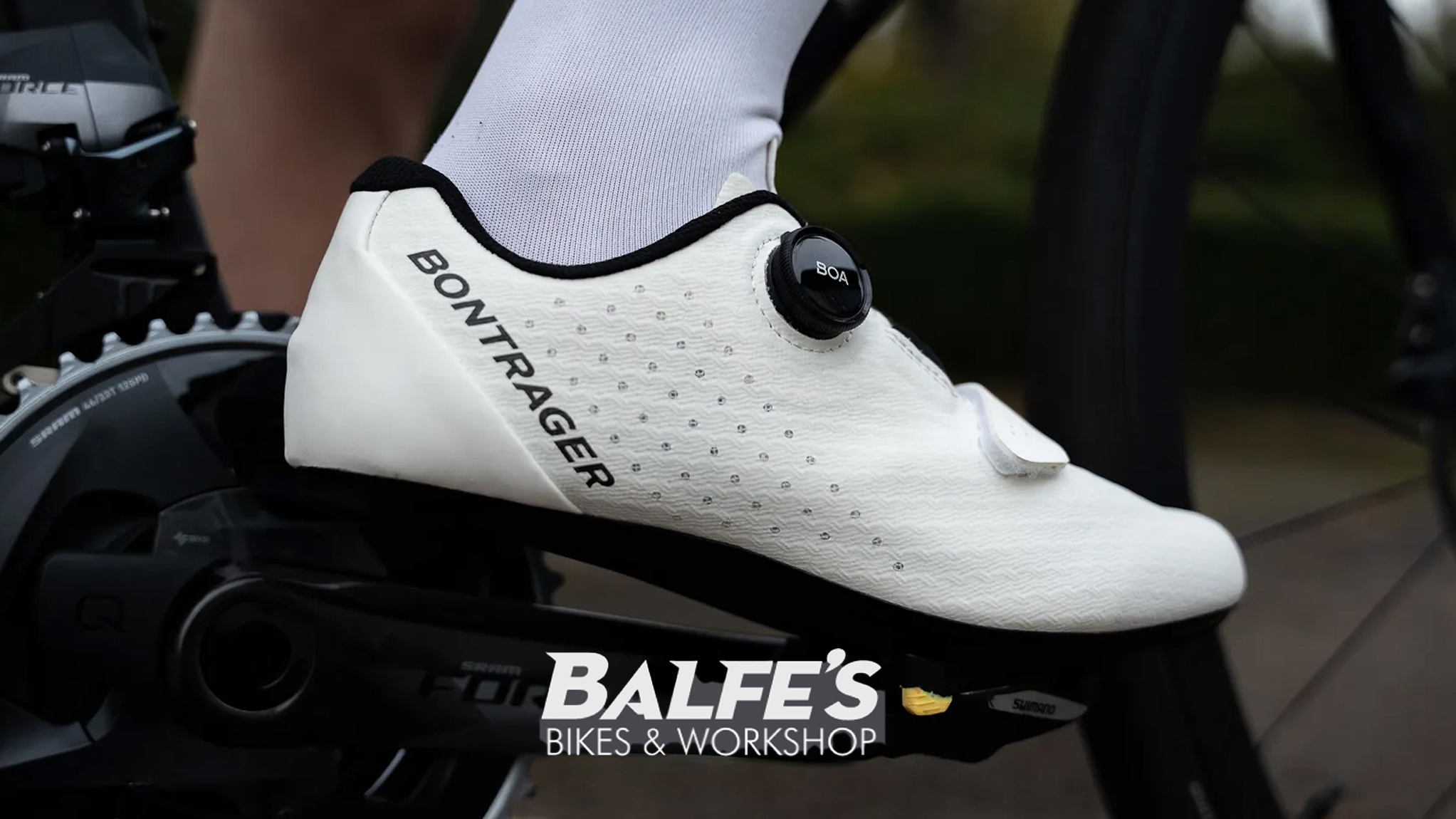 Gear up for your best summer of riding – Balfe's Bikes has up to 54% off Bontrager shoes, helmets, lights and much more
Gear up for your best summer of riding – Balfe's Bikes has up to 54% off Bontrager shoes, helmets, lights and much moreSupported It's not just Bontrager, Balfe's has a huge selection of discounted kit from the best cycling brands including Trek, Specialized, Giant and Castelli all with big reductions
By Paul Brett
-
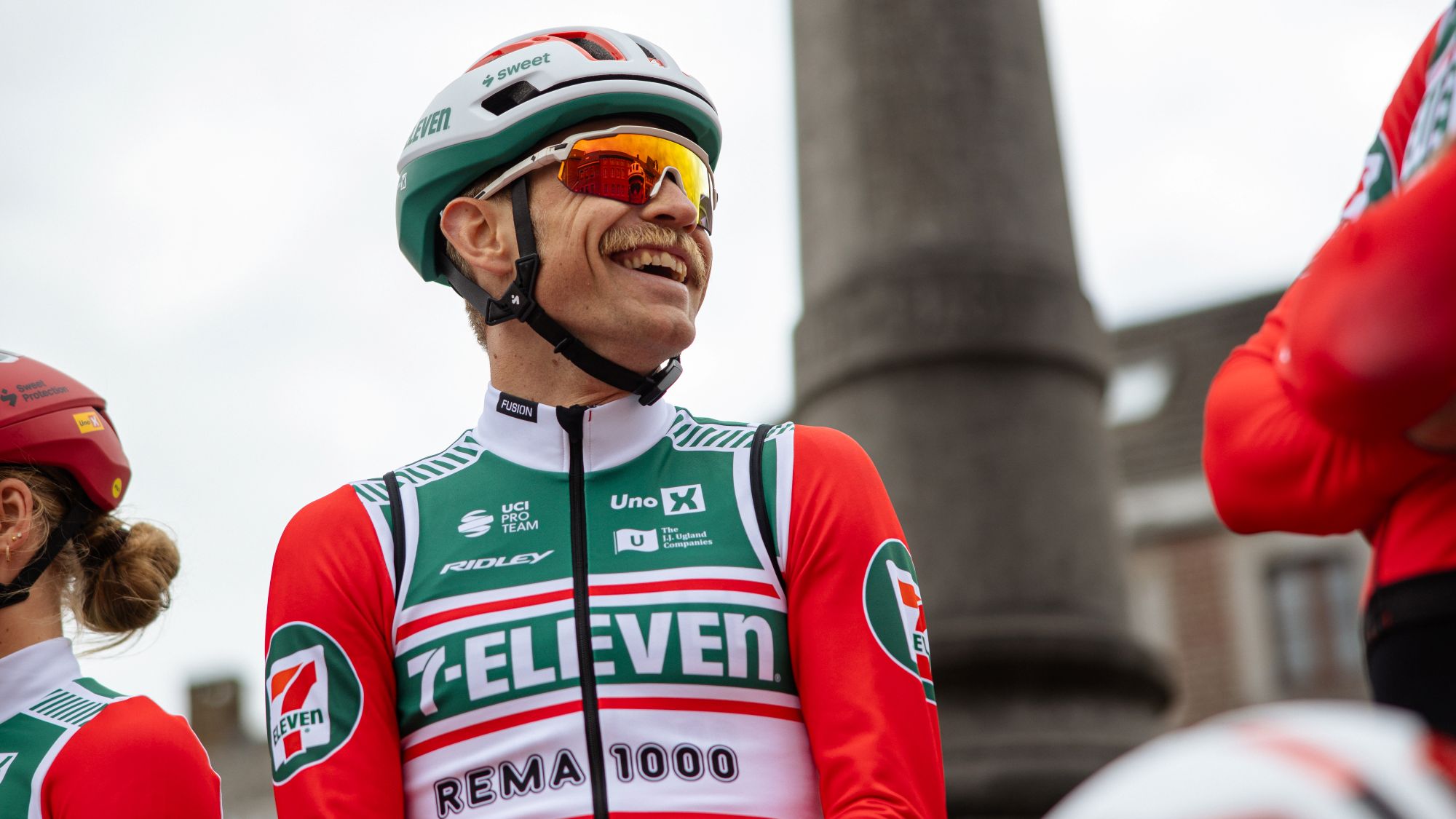 7-Eleven returns to the peloton for one day only at Liège-Bastogne-Liège
7-Eleven returns to the peloton for one day only at Liège-Bastogne-LiègeUno-X Mobility to rebrand as 7-Eleven for Sunday's Monument to pay tribute to iconic American team from the 1980s
By Tom Thewlis